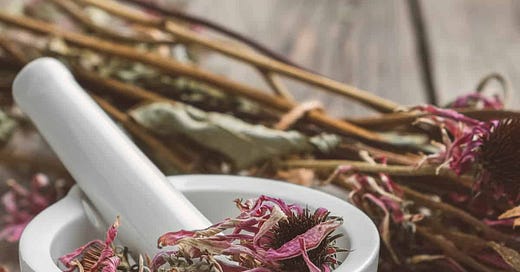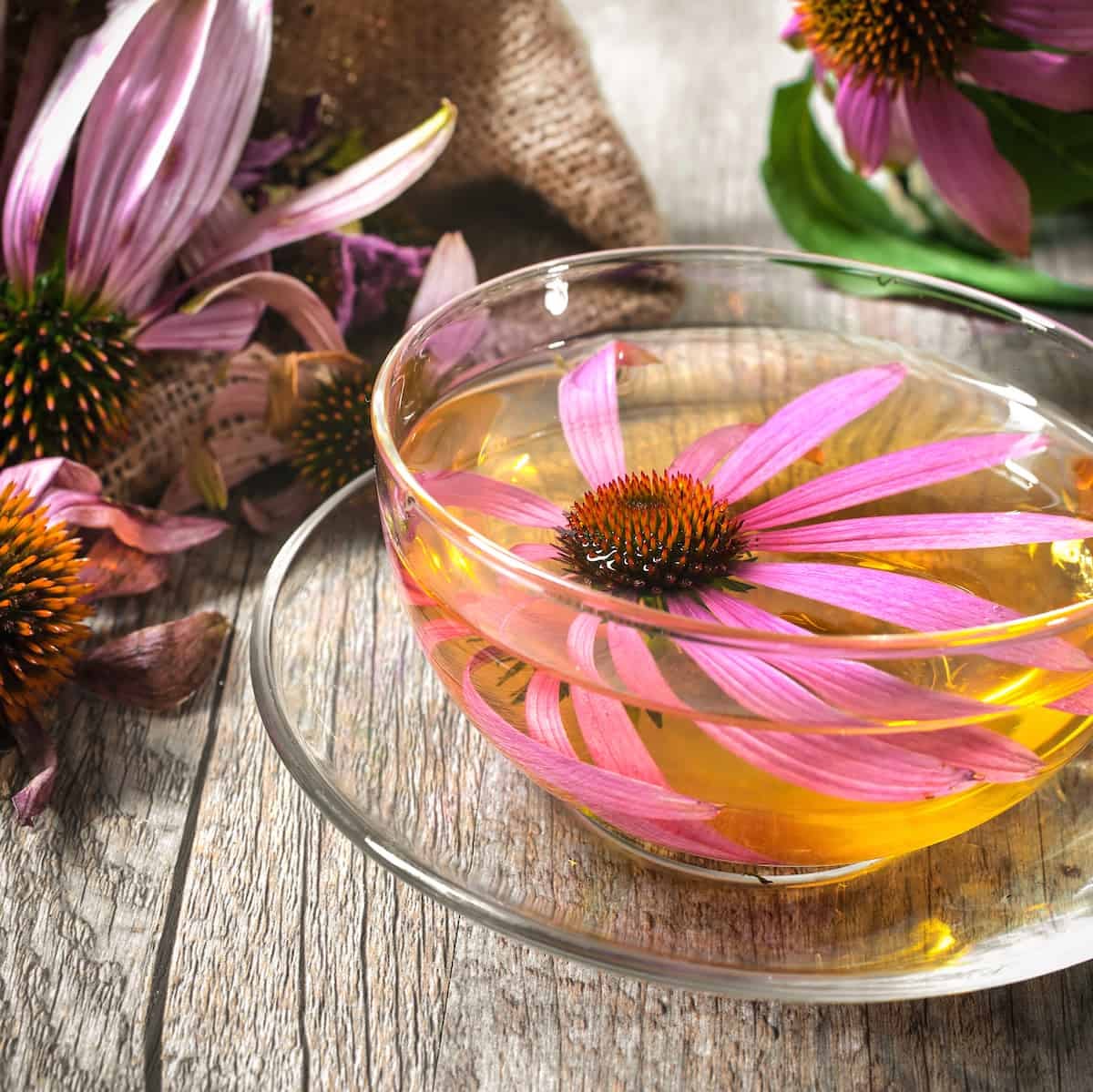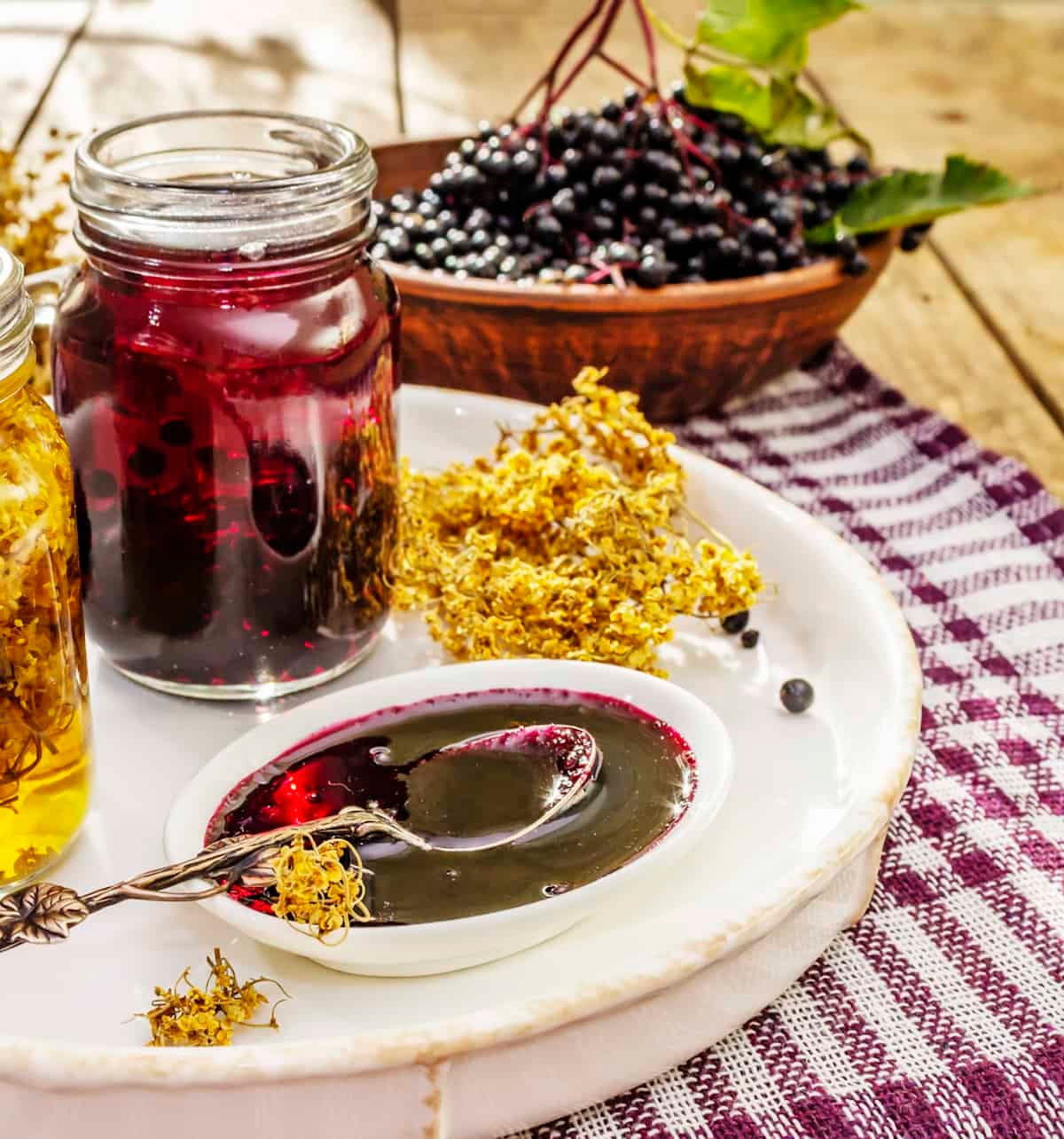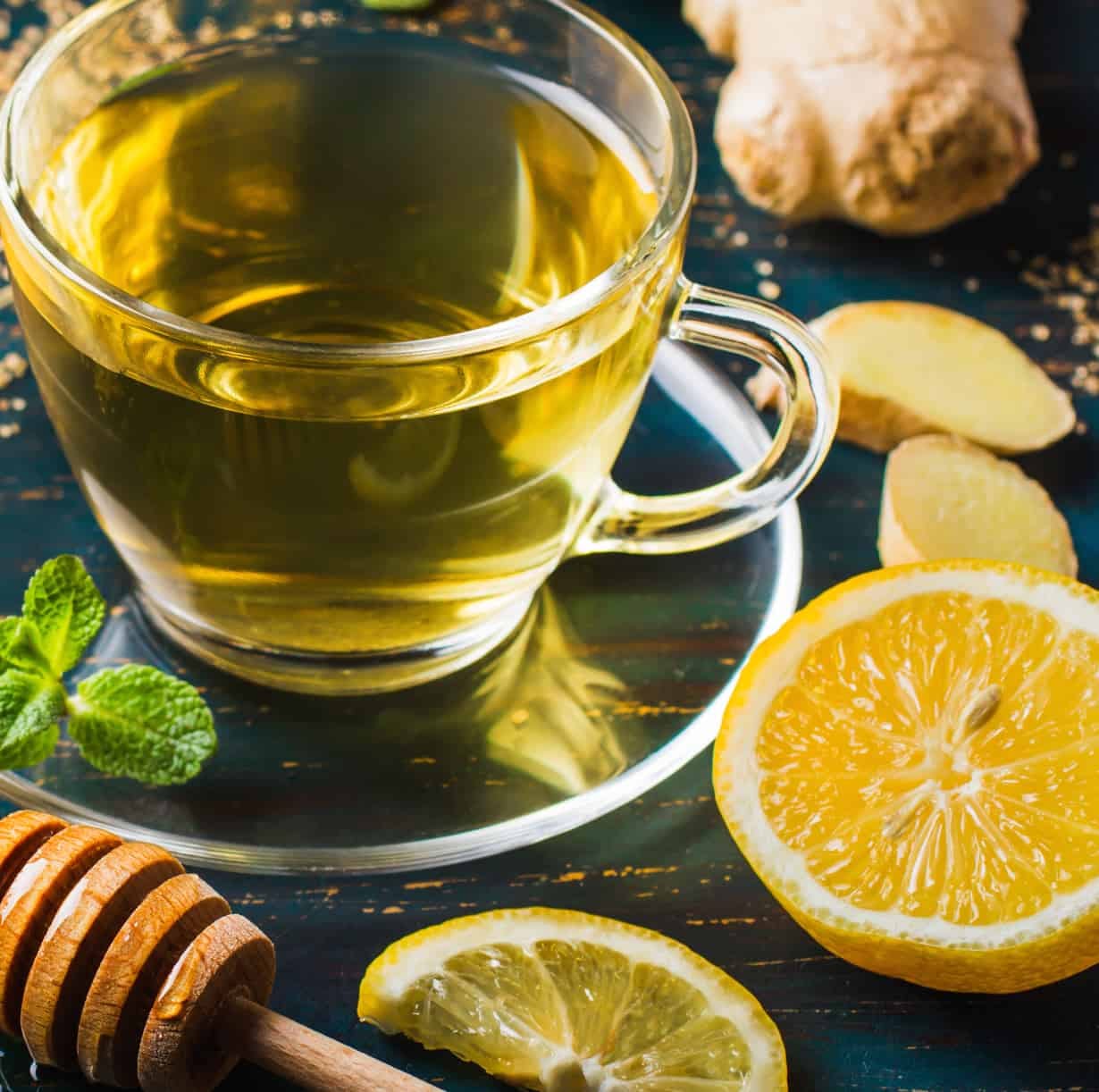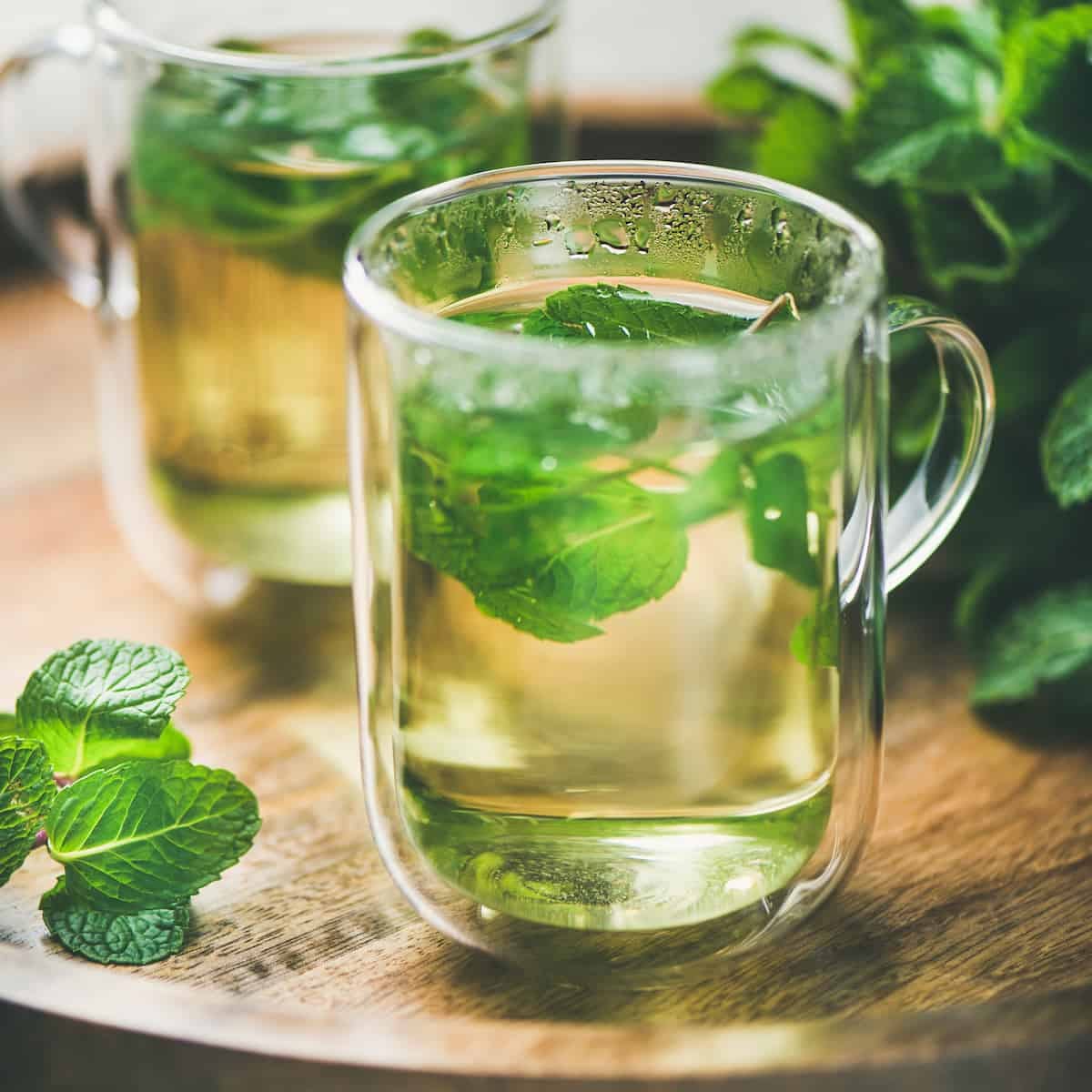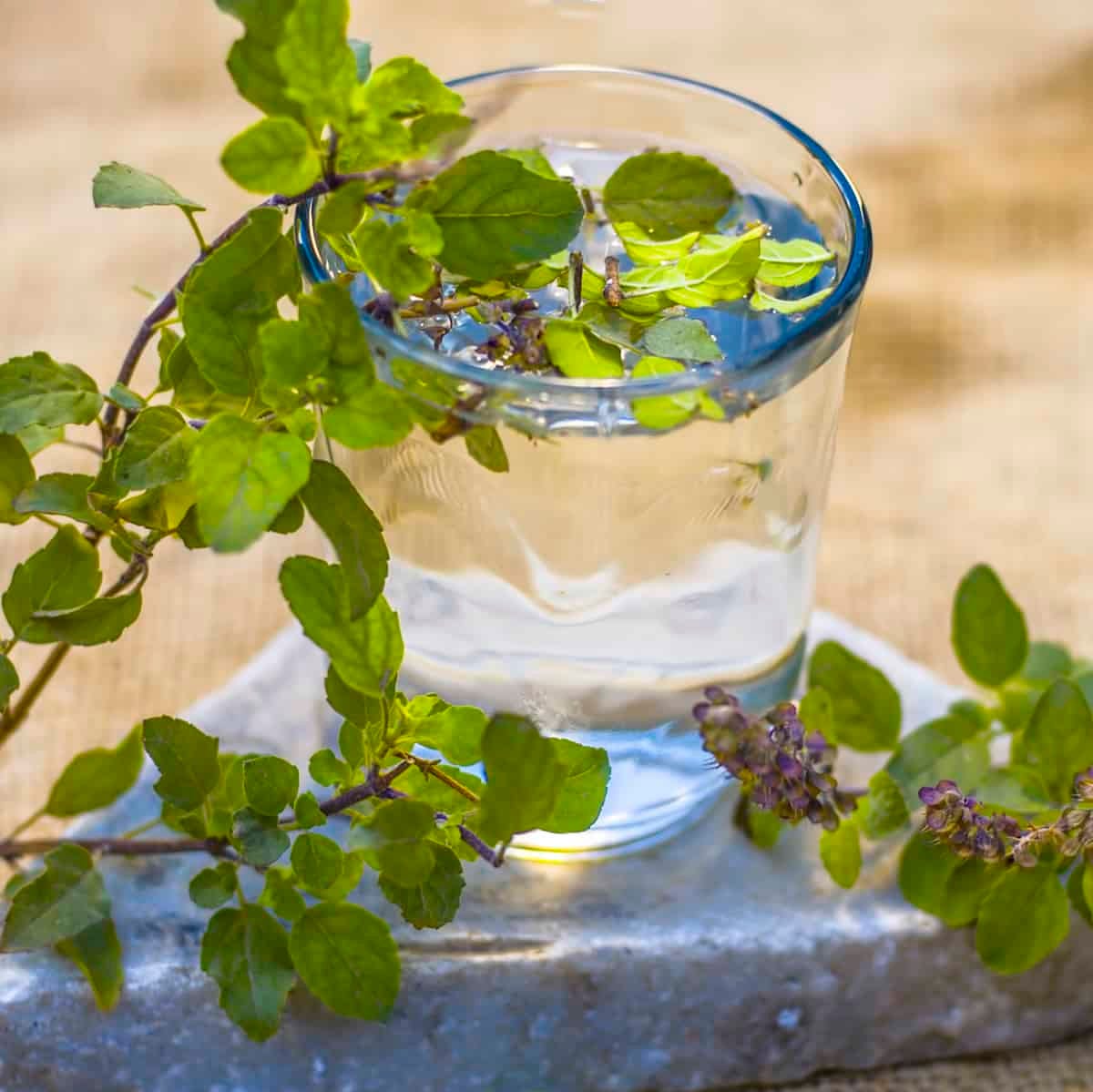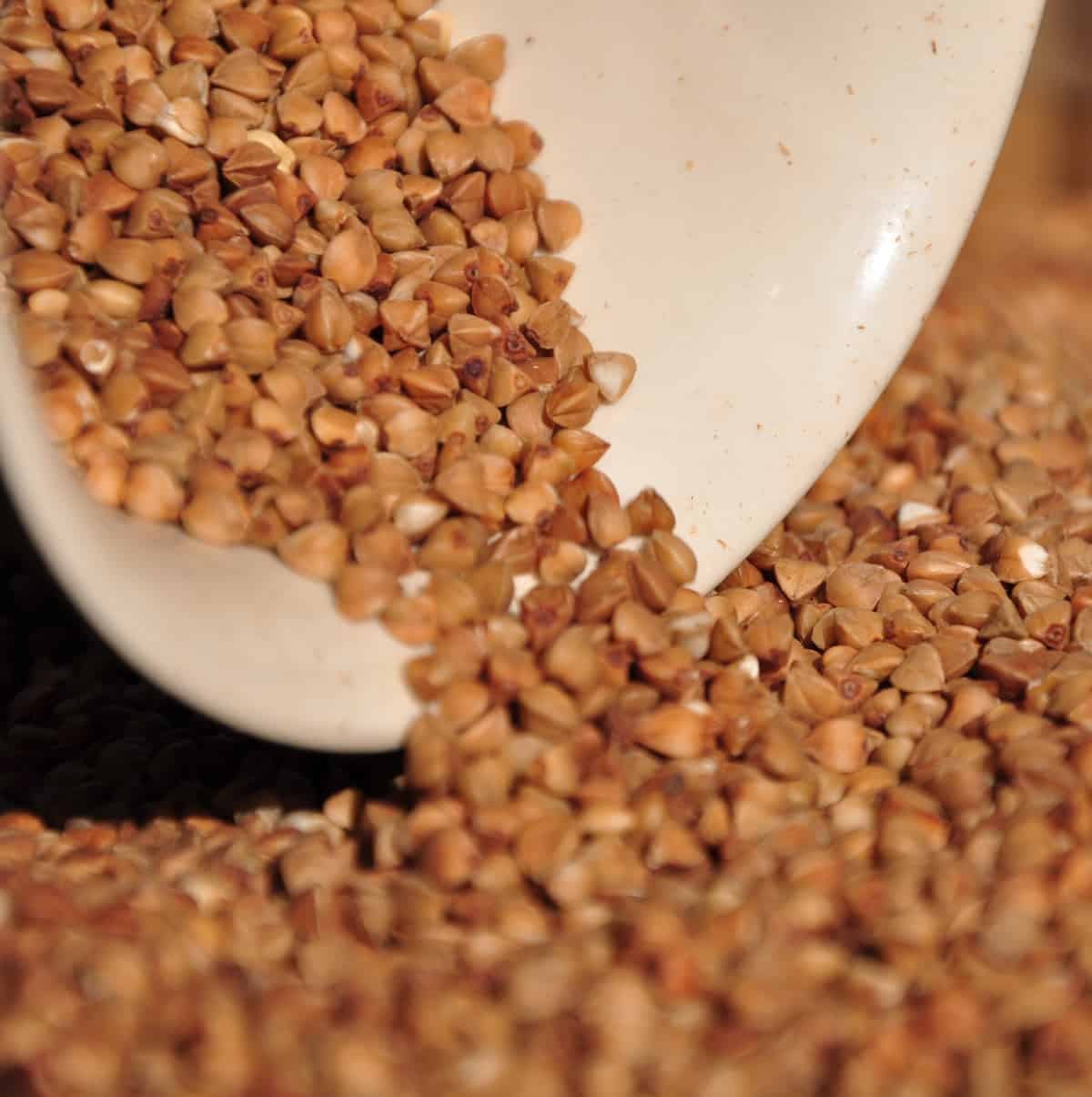Boosting Immunity with Seasonal Teas and Herbs
How to boost the immune system naturally with herbal teas.
Learning that you can heal your body is very empowering. We’re living in a lot of fear today because we’ve lost that ability—we’ve lost that healing knowledge from the natural world and given it away to others.
The immune system is constantly working to protect you, defending your body against foreign substances like bacteria, viruses, chemicals, or toxins. A foreign substance could be from an external threat, such as a virus, or an internal threat from damaged or cancerous cells that need to be cleared out by the immune system.
Immune support is critical today. Herbal teas are the precursors to modern medicines; some herbs help support a robust immune system. Botanicals are just some of the many ways to support your immune system.
Today, there is a widespread epidemic of overfed, undernourished people developing chronic diseases such as diabetes, heart disease, and immune disorders. If you’re undernourished, it doesn’t matter how many teas and tinctures you drink; if you’re not nourishing your body with nutritious whole foods, the herbal tinctures can only go so far.
In the Disease Delusion, Dr. Jeffrey Bland explains that deficiencies in critical nutrients can interfere with the functions of T and B cells in the immune system.
“Deficiencies in zinc, omega-3 fatty acids, vitamins A and B—especially folic acid, amino acids L-lysine and L-arginine, Vitamins C and E, iron, and copper—all play a critical role in supporting the immune system.”
For example, Vitamin C (ascorbic acid) is now well-known as a robust immune system nutrient. Dr. Pauling, the author of Vitamin C and the Common Cold, recommends higher doses than the Food and Nutrition Board's RDA (recommended daily allowance) of 75-90 milligrams daily for adult women and men, respectively. However, the RDA recommendation is the minimum requirement to prevent deficiency, which can lead to scurvy, because humans do not produce their own Vitamin C. The RDA is not focused on peak immune performance.
You may believe that scurvy is uncommon today, but some medications, such as oral contraceptives, may cause women to be at risk for vitamin C and other vitamin deficiencies. The most common symptom of vitamin C deficiency is bleeding gums.
Vitamin C becomes especially crucial when the body is under stress. Increased amounts are needed to combat bacteria and viruses and to produce adrenaline hormones like epinephrine and norepinephrine. The more stress the body experiences, the more Vitamin C it depletes.
How to support your immune system
The immune system is everything; it is in every cell in your body and always working. Your immune system includes cells, tissues, and organs that fight infection and disease. Your skin, mucous membranes, and white blood cells fight to prevent or trap germs from entering the body.
A significant part of your immune system lies within the intestines, specifically the small intestine, the microbiome's center. This central body organ is responsible for 50 - 70 percent of your immune system. A healthy gut microbiome is vital for a healthy immune system. For centuries, herbs and spices were not a separate protocol but integrated into everyday meals and beverages.
A well-functioning immune system is the foundation of a healthy body. Botanical remedies are a nutritional source of immune support. Hippocrates emphasized dietary and lifestyle measures as part of the original Hippocratic oath.
“Let food be thy medicine, and let medicine be thy food.”
—Hippocrates
Specific plants and plant foods, including blueberries, cranberries, garlic, pomegranate, Echinacea purpurea, and Andrographis paniculata, have been identified as boosting the immune system.
Therapeutic & healthy teas
Your body thrives on the antioxidants in superplants known as polyphenols. Cells are frequently under attack by oxidative stress and free radicals from environmental toxins.
Antioxidants bind to those free radicals, preventing them from causing cellular damage. Getting a variety of antioxidants and polyphenols is critical for immune support and function.
Most herbs used as tea are not as concentrated in strength as herbs in a tincture for medicinal purposes, but herbal teas still have the same benefits. Herbal tinctures are more concentrated than teas. In general, 30 drops of tincture are the equivalent of 1 cup of therapeutic-strength tea.
Tea vs. therapeutic tea
To make a therapeutic strength tea, add approximately two tablespoons of dried herb per cup of water and steep or simmer for 10 minutes.
Different immune-boosting tea types provide unique polyphenols:
Green teas are prized for their catechins, specifically epigallocatechin-3-gallate (EGCG). Catechins are potent antioxidants that support cellular health, especially when exposed to environmental toxins and other invasive threats.
Black teas feature theaflavins, potent plant compounds that support gut health. Theanine in tea promotes antiviral activity.
Herbal teas are botanical powerhouses of polyphenols, often not found elsewhere in nature. Each herb has its unique medicinal qualities.
Traditionally, tea from the Camellia sinensis plant is called tea, and herbal infusions are called tisanes. However, the term tea is often used when referring to herbal infusions.
Professional herbalist recommendations
Roy Upton, RH, DipAyu, has been a professional herbalist since 1981. He is trained in Ayurvedic, Traditional Chinese, and Western herbal medicine and has worked extensively with Native American and Caribbean ethnobotanical traditions. He is the founder, Executive Director, and editor of the American Herbal Pharmacopoeia (AHP).
At a recent tea conference, I asked him for recommendations on where to buy the best herbs. He recommended Mountain Rose Herbs as a "great source for quality herbs."
Upton said,
"Mountain Rose is probably the best source for most consumers. The quality control people there are great. They source their herbs from sustainable sources. They're just impeccable with regards to what they do."
I can also highly recommend Rishi Tea and Botanicals. Rishi specializes in organic, direct-trade tea and carries a select line of immune-boosting botanical teas. You can purchase some of the teas mentioned in this article from Rishi or Mountain Rose Herbs.
Can you mix herbs with black or green tea?
According to Upton, one of the challenges of mixing any tea from Camellia sinensis is that the plant's astringent qualities will bind with other herbs' constituents, making them somewhat unavailable.
"Typically in the world and particularly Asia, they're not mixing herbs with tea from Camellia sinensis. They don't do that. You drink green tea separately, chrysanthemum tea separately, and immune-supportive herbal teas separately. The tannins in Camellia sinensis bind with other compounds in the herbs, rendering them less effective."
My immune support protocol
Drinking all your immune-supporting teas in a rotation rather than mixing them is a perfect way to get them all.
Morning tea: Drink one to two cups of black or green tea.
Afternoon tea: Drink one to two cups of green tea, such as Sencha or Dragon Well. An oolong is also lovely in the afternoons.
Evening tea: Drink one to two cups of caffeine-free herbal teas, such as ginger, hibiscus, chamomile, or elderberry.
Feeling Overwhelmed? Find Your Calm Today
Herbal teas don’t have caffeine
Herbal teas have supported healthy immunity for centuries. Most herbal teas are brewed from dried flowers, leaves, seeds, berries, or generally caffeine-free roots—however, Yerba Mate is one herb that contains caffeine.
Eight herbal teas for immune support
Traditional herbs are consumed daily in many cultures worldwide for their powerful phytonutrients. Herbs are brimming with antioxidants, essential vitamins and minerals, and other immune-supportive plant compounds.
Here are my top eight immune-boosting herbal tea picks to complement the potent health benefits of Camellia sinensis teas. For maximum benefit, it's best to consume herbs when they are fresh.
Echinacea tea
Echinacea is one of the most well-studied herbs in herbal medicine. It has numerous effects on the immune system, from increased antibody response to elevated interferon levels for fighting viruses to stimulating white blood cells.
Polysaccharides, glycoproteins, and alkylamides have medicinal effects that boost the immune system and inhibit viruses and bacteria. source
Echinacea will not prevent a cold, but some studies show daily use can shorten the length of a cold.
How to Make Echinacea Tea
1 to 2 teaspoons of echinacea leaf/flower
Steep in 1 cup of boiling water.
Or boil 1 teaspoon of echinacea root in 1 to 2 cups of water for 10 minutes.
Elderberry immune support tea
Ripe elderberries are famous for making elderberry wine. However, cold and flu treatments made from elderberries contain antioxidants with anti-inflammatory properties beneficial to the immune system.
Laboratory studies have shown that elder extracts act as antivirals, inhibiting flu replication and other viruses. source
In one study, elderberry led to a faster resolution of flu symptoms in 15 people taking four tablespoons of elder syrup, raspberry, glucose, honey, and citric acid (brand name Sambucol) compared to 12 people taking a placebo. source
Studies show that elderberry syrup administered at the first sign of illness shortens the severity and length of colds and flu. Elderberries contain high levels of vitamins A and C and flavonoids with antioxidant properties that outrank other berries. source
It doesn't have to be European Elderberry. European elderberry and North American Elderberry are very closely related. Sambucus nigra is European, and the American is Sambucus nigra variety Canadensis, also called Canadensis.
How to Make Elderberry Tea
2 tablespoons dried elderberries
2 cups of boiled, filtered water
Simmer for 15 minutes.
Strain into mugs, add honey to taste, and enjoy.
Ginger tea
Ginger and Tumeric are Ayurvedic staples used for digestion and to decrease inflammation. Ginger is a common spice and a widely used medicinal plant, particularly as a broad-spectrum anti-emetic agent.
Research suggests the compounds in ginger support healthy immune function and cellular health. source
Drink fresh ginger tea throughout the day. Research shows that ginger root has antiviral and antibacterial properties. source
How to Make Fresh Ginger Tea
Slice one inch of the fresh rhizome into small pieces.
Simmer in 2 cups of filtered water for 15 minutes.
Strain into a mug.
Turmeric tea
Turmeric is often added to Ayurvedic practitioners' ginger tea to assist with circulation, the liver, and healthy joints. New research confirms turmeric can support cellular health, keep your body's natural anti-inflammatory response, and support your immune cells. source
Curcumin is a highly active compound in turmeric. Studies show curcumin reduces inflammation in the body, particularly in the gastrointestinal tract. source
How to Make Turmeric Tea
Pour 2 cups of boiling water over
1 teaspoon powdered turmeric.
Steep for 10 minutes.
Strain into a cup. Add honey or lemon to taste.
Immune-boosting turmeric lattes are another way to consume turmeric in a beverage. It is adapted from the 5,000-year-old Ayurvedic Golden Milk healing recipe to boost immunity. These are especially good if you don't like drinking ginger or turmeric tea alone.
Golden turmeric milk recipe
Instructions
1 cup of whole organic milk
1 teaspoon turmeric powder
A sprinkle of black pepper
A dab of ghee
Honey or organic sugar to taste
Directions
Place milk in a saucepan over low/medium heat.
Bring to a low boil.
Add all ingredients except the honey* or sugar. Let the mixture simmer for a few minutes, stirring occasionally.
Turn off the heat, and allow the mixture to cool to a warm, drinkable temperature.
When the mixture has cooled, add honey or sugar to taste.
Serve warm.
*Do not add honey while heating the milk.
Peppermint tea
Mint leaves are best known as a digestive remedy, but studies also point to possible immune support benefits. Peppermint has significant antimicrobial and antiviral activities, potent antioxidant and antitumor actions, and some antiallergenic potential. source
Peppermint and its active constituent, menthol, benefit the respiratory system. A warm peppermint tea thins mucous and loosens phlegm, relieving a stuffy nose.
Peppermint tea, brewed from plant leaves, and peppermint essential oil are used in traditional medicines.
How to Make Peppermint Tea
Pour one cup of boiling water over 1 teaspoon of dried mint leaves or 6 to 8 fresh mint leaves.
Steep for 10 minutes and strain into a mug.
Hibiscus Tea
Hibiscus is valued as a diuretic and mild laxative. It also treats colds, coughs, and heart disorders, making it ideal as a general health tonic.
A refreshing drink, hibiscus tea contains Vitamin C, mucilage, pectins, and anthocyanins, antioxidant compounds. The mucilage and Vitamin C are beneficial for treating colds and sore throats.
Hibiscus may help support balanced immune function and the immune system's natural response against pathogens throughout the body. However, more studies are needed to prove the antiviral effects of hibiscus tea. source
How to Make Hibiscus Tea
Pour 1 cup of boiling water over 2 teaspoons of chopped hibiscus.
Steep for 15 minutes.
Strain and serve with honey chilled or hot.
Tulsi (Holy Basil) tea
Ayurvedic medicine uses Tulsi to control coughs and enhance immunity. Holy Basil is an essential tonic in Ayurveda, and it is used to support general health.
Five clinical trials indicate tulsi may support healthy immune function or support the body's natural antiviral capabilities. source
These studies document the anti-inflammatory effects of tulsi. Tulsi has multiple bioactive metabolites that act alone or synergistically to inhibit inflammatory pathways. source
How to Make Tulsi Tea
Boil 1 cup of filtered water.
Pour it over 1 teaspoon of fresh tulsi leaves (or ½ teaspoon of dried tulsi leaves, or ⅓ teaspoon of tulsi powder.)
Simmer for 15 minutes.
Strain into a mug.
Add lemon or honey to taste.
Buckwheat tea or soba cha
Soba is Japanese for buckwheat. Soba cha is roasted buckwheat tea, a traditional Japanese specialty prepared as an herbal tisane. It is naturally caffeine-free, with a toasty flavor and nutty undertones.
Buckwheat tea contains a high amount of quercetin, a plant flavonoid with antiviral properties. Very few tea vendors sell buckwheat tea in the United States; it is primarily found in Asian markets. I discovered Harney & Sons selling an excellent Soba Buckwheat Tea.
How to Make Buckwheat Tea
Boil 1 cup of filtered water.
Pour it over 1 - 1/12 teaspoon roasted buckwheat
Steep for 5 minutes.
Strain into a mug.
Add honey to taste.
Supplements for enhanced immune support
Some studies have shown the effectiveness of high doses of micronutrients, including Vitamin C, Vitamin D, zinc, and quercetin, in supporting immunity. Quercetin is a flavonoid and well-known antioxidant, anti-inflammatory, and antiviral bioactive found in many plants, including tea. Other flavonoid foods include red wine, onions, apples, cherries, berries, and citrus fruits, the primary sources of quercetin.
Herbal and nutritional approaches to immune support acknowledge that there are alternative therapeutic options against viruses. In addition to herbal teas, you may want to explore the immune defense benefits that supplements can provide.
“If you make no other changes to your nutrition, consider these standout options.”
—Roy Upton, RH, DipAyu, A Taste for Life
A supplement prophylactic protocol for people at low to moderate risk of viral infection is:
Vitamin D3 - 1,000–3,000 IU/day
Vitamin C - 500–1,000 mg 2 x daily
Quercetin - 250 - 400 mg/day
Zinc - 30–40 mg/day (elemental zinc)
I prophylactically take these supplements when traveling to highly crowded venues or when I feel a viral infection developing.
“Although contradictory data exist, available evidence indicates that supplementation with multiple micronutrients with immune-supporting roles may modulate immune function and reduce the risk of infection. Micronutrients with the strongest evidence for immune support are vitamins C and D and zinc.”
—A Review of Micronutrients and the Immune System–Working in Harmony to Reduce the Risk of Infection, Nutrients
Get moving
Physical movement supports the flow and drainage of the lymphatic system, another critical component of the body’s immune system.
The lymphatic system collects waste, bacteria, and damaged cells, draining them as lymph into capillaries and vessels. These vessels transport lymph through the body, with lymph nodes filtering out unwanted materials.
Walking outside in the sun and fresh air is the easiest way to stay active and support your immune system. Let’s walk!

